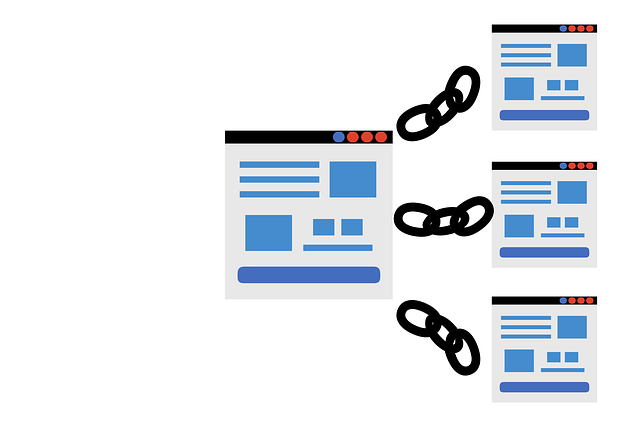Common Mistakes in PBN Link Building
Potential Pitfalls in PBN Link Building
Building Private Blog Network (PBN) links can be an effective strategy for boosting your website’s search engine ranking. However, there are several potential pitfalls that must be carefully navigated to ensure the success of your SEO efforts. One common pitfall is building PBN links on low-quality domains. When these domains lack authority and relevance, they can actually harm your site’s reputation with search engines, leading to penalties and decreased visibility.
Another common mistake is using over-optimized anchor texts in your PBN links. While it may be tempting to use exact-match keywords for maximum SEO impact, this can come across as unnatural to search engines and raise red flags. It’s crucial to maintain a balance and vary your anchor texts to appear more organic and avoid penalties.
Building PBN Links on Low-Quality Domains
Utilizing low-quality domains in Private Blog Network (PBN) link building can compromise the overall effectiveness of your SEO strategy. By associating your main website with domains that lack credibility, authority, and relevance, you run the risk of diminishing the positive impact of your backlink profile. Low-quality domains may be characterized by spammy content, a history of penalties, or low domain authority scores. Placing backlinks on such domains can lead to search engine penalties and negatively impact your website’s ranking.
When selecting domains for your PBN, prioritize quality over quantity. Choose domains with a strong backlink profile, relevant content, and good organic traffic. Investing time and resources into acquiring high-quality domains will not only enhance the authority of your PBN but also contribute positively to the SEO performance of your main website. Remember, the goal of PBN link building is to create a network of trustworthy and authoritative websites that can boost your site’s visibility in search engine results.
Using Over-Optimized Anchor Texts
Over-optimizing anchor texts in PBN link building can have detrimental effects on your website’s SEO performance. When anchor texts are excessively saturated with keywords or key phrases, search engines may penalize your site for unnatural linking patterns. It is crucial to strike a balance between using relevant anchor texts and avoiding keyword stuffing to maintain a natural link profile.
Using a variety of anchor texts that are contextually relevant to the linked content can enhance the credibility and authenticity of your PBN links. By diversifying anchor texts with a mix of branded terms, generic phrases, and partial matches, you can signal to search engines that your backlink profile is organic and not manipulative. Remember that a harmonious blend of optimized and natural anchor texts is key to building a robust and sustainable PBN link portfolio.
Neglecting Diversity in Link Sources
Focusing solely on one source for link building can prove to be a significant hindrance to a website’s SEO efforts. Relying too heavily on a single type of link, such as PBN links, can lead to an unnatural backlink profile that may raise red flags to search engines. It is crucial to diversify link sources to create a more organic and authentic link profile that is in line with search engine guidelines.
By neglecting diversity in link sources, website owners risk missing out on the opportunity to establish credibility and authority within their niche. Utilizing a variety of link building strategies, such as guest posting, social media, and reputable directories, can help in creating a well-rounded backlink profile that is more likely to withstand algorithm updates and penalties. Embracing diversity in link sources not only strengthens the website’s SEO performance but also enhances its overall online reputation and visibility.
Not Updating PBN Websites Regularly
Failing to stay on top of regular updates for your private blog network (PBN) websites can have detrimental effects on your overall link building strategy. Outdated content and neglected sites can quickly signal to search engines that your network is not well-maintained or reliable. This lack of attention can lead to a decrease in domain authority and ultimately impact the effectiveness of your PBN links.
Moreover, without regular updates, your PBN websites run the risk of becoming stagnant and irrelevant. Search engines value fresh and engaging content, and failing to provide this can result in decreased organic traffic and reduced visibility in search engine results pages. By neglecting to update your PBN websites regularly, you are missing out on the opportunity to strengthen the authority of your links and enhance the overall credibility of your network.
Failing to Mask Footprints
One crucial aspect often overlooked in PBN link building is the failure to adequately mask footprints. Footprints refer to patterns or similarities within the network that search engines can detect, potentially leading to penalization. When these footprints are not properly hidden, it becomes easier for search engines to identify the network as a manipulation tactic rather than a natural link-building strategy.
To effectively disguise footprints, various measures can be taken, such as using different hosting providers, IP addresses, domain registrars, and website designs across PBN sites. Additionally, diversifying the content, link profiles, and outbound linking strategies can help create a more natural online presence. By diligently masking footprints, PBN operators can reduce the risk of triggering search engine algorithmic penalties and ensure the longevity and effectiveness of their link-building efforts.
Ignoring Relevant Content on PBN Sites
It is imperative in the realm of Private Blog Network (PBN) link building to place significant emphasis on the quality and relevance of content featured on PBN sites. Neglecting to provide relevant and valuable content can significantly diminish the effectiveness and credibility of the backlinks established through these platforms. While it may be tempting to focus solely on the link aspect of PBNs, overlooking the importance of aligning content with the niche or theme of the referring site can undermine the overall success of the link-building strategy.
In the world of search engine optimization, content remains king. By disregarding the need for relevant and engaging content on PBN sites, the potential to capture and retain the interest of both visitors and search engines is compromised. Failing to produce content that resonates with the target audience not only hinders the ability to drive organic traffic but also weakens the authority and trustworthiness associated with the backlinks incorporated within the PBN network.
Linking to Unrelated Websites
When building links through a private blog network (PBN), it is crucial to ensure that the websites you are linking to are relevant to the content of your PBN sites. Linking to unrelated websites can raise red flags to search engines, potentially harming the SEO efforts of both your PBN sites and the sites you are linking to. Moreover, irrelevant links can confuse visitors and undermine the credibility of your PBN network. It is advisable to only include links to websites that offer value and relevance to the audience of your PBN sites.
Incorporating links to unrelated websites could also lead to a decrease in organic traffic and a drop in search engine rankings for your PBN sites. Search engines place importance on the relevance of links, and when they detect a pattern of linking to irrelevant websites, it may result in penalties or a loss of authority for your PBN network. To maintain the integrity and effectiveness of your PBN links, it is essential to carefully vet the websites you are linking to and ensure that they align with the overall theme and purpose of your PBN sites.
Relying Solely on PBN Links for SEO
It can be tempting for some SEO practitioners to solely rely on Private Blog Network (PBN) links as the primary strategy for boosting website rankings. However, this approach can pose significant risks in the long run. By putting all your SEO eggs in the PBN basket, you are vulnerable to potential algorithmic updates from search engines that may penalize websites using manipulative tactics.
Diversifying your link building strategy beyond PBNs is crucial for building a robust and sustainable online presence. Incorporating a mix of organic, high-quality links from reputable websites, along with other legitimate SEO techniques, can help mitigate the risks associated with relying solely on PBN links. Furthermore, a diversified approach not only enhances the credibility of your website in the eyes of search engines but also strengthens its overall authority and relevance in the digital landscape.
Not Monitoring PBN Site Performance
Regularly monitoring the performance of your private blog network (PBN) sites is a critical aspect of maintaining their effectiveness and ensuring they continue to contribute positively to your SEO efforts. Without consistent monitoring, you may overlook issues such as downtime, technical errors, or declining traffic, which can impact the overall performance of your PBN links. By neglecting to track the performance metrics of your PBN sites, you risk missing out on valuable insights that could help you make informed decisions and optimize your link building strategy.
In addition to tracking basic performance metrics like uptime and traffic, it is essential to delve deeper into the data to identify trends and patterns that could indicate potential problems or opportunities for improvement. By analyzing factors such as click-through rates, bounce rates, and conversion rates, you can gain a better understanding of how effective your PBN sites are in driving engagement and delivering value to your target audience. Ignoring the importance of monitoring PBN site performance not only limits your ability to maximize the impact of your links but also hinders your ability to adapt and evolve your SEO strategy in response to changing circumstances.
Not Disavowing Toxic Links
Failing to disavow toxic links can have detrimental effects on your website’s search engine rankings and overall online reputation. By not taking the necessary steps to distance your site from harmful links, you risk being associated with spammy or low-quality websites in the eyes of search engines. These toxic links can not only hinder your SEO efforts but also lead to penalties from leading search engines like Google, impacting your site’s visibility and credibility.
In the digital realm, maintaining a clean and trustworthy backlink profile is crucial for sustainable SEO success. Ignoring the presence of toxic links can diminish the authority of your website and erode the trust of both search engines and your target audience. It is imperative to regularly audit your backlink profile, identify any harmful links, and promptly disavow them through Google Search Console to safeguard the integrity and performance of your website in the competitive online landscape.
Not Rotating IP Addresses for PBN Websites
When it comes to building a Private Blog Network (PBN), one vital aspect that shouldn’t be overlooked is the rotation of IP addresses for each website within the network. Using the same IP address for multiple PBN sites can create a clear footprint for search engines to detect, potentially leading to penalties or de-indexing. By not rotating IP addresses consistently, you risk exposing the interconnected nature of your PBN, making it easier for search engine algorithms to identify and devalue your network.
It is essential to understand that search engines are constantly evolving in detecting manipulative link-building tactics, including PBNs. By neglecting to rotate IP addresses for your PBN websites, you are essentially leaving behind a trail that can be easily traced. Ensuring each site in your network has a unique IP address adds a layer of complexity that can help disguise the connections between your sites, enhancing the longevity and effectiveness of your PBN strategy.
Lack of Link Velocity Control
Maintaining a steady and controlled pace when it comes to building backlinks is crucial in ensuring the effectiveness and longevity of your SEO efforts. Failing to regulate the speed at which you acquire links can raise red flags with search engines and potentially lead to penalties. In the world of PBN link building, the absence of adequate link velocity control can significantly undermine the overall strategy and harm your website’s rankings.
Inconsistent link building patterns, sudden spikes in backlink acquisition, or an unusually high volume of links within a short timeframe can alert search engines to unnatural or manipulative practices. This lack of link velocity control could trigger algorithmic penalties or manual actions against your website, resulting in a loss of ranking positions and organic traffic. It is essential to adopt a measured approach to link building that aligns with natural growth patterns and avoids drawing unwanted attention from search engine algorithms.





